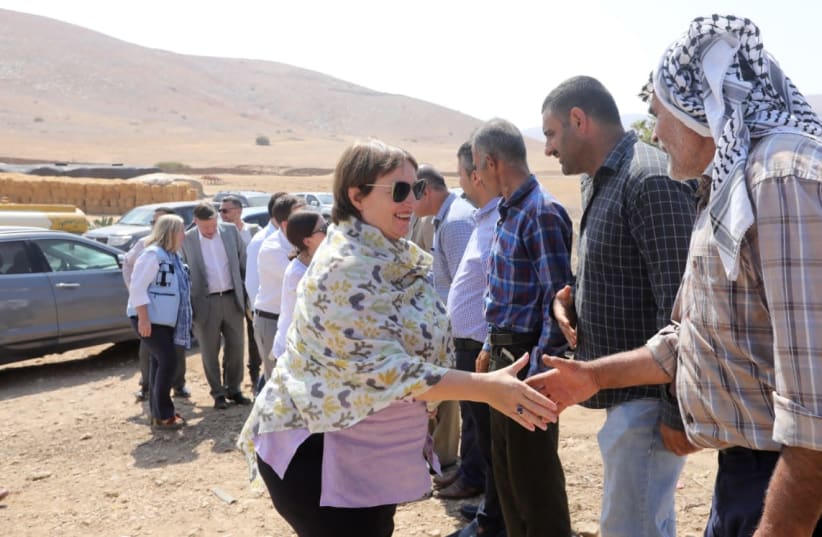Among her stops was a visit to a Jordan Valley school in the Palestinian village of Ein Shibli, where she was greeted by children waving Palestinian flags, some of whom were dressed in traditional Palestinian garb.Terstal comes at a time when the peace process is frozen, and as the US seems to be waiting for the coalition results of the Israeli election before publishing its peace plan.At issue in the interim is the future of Area C – which is under Israeli military and civil control – particularly in light of Israel’s annexation plans. Israel and the EU have been at odds over the issue of Palestinian development in Area C, with the EU maintaining that the area must be part of a future Palestinian state.“Area C is over 60% of the West Bank and is the heartland of any viable Palestinian state,” she said. “During my visit today, I’ve seen with my eyes the harsh conditions the Palestinians living in Area C are facing. A lot of them don’t have access to water and electricity, while only a few hundred meters away settlements have been built and have access to all the features of modern life.”Palestinian communities in Area C are “suffering from under-development,” according to Terstal. “The EU and its partners have repeatedly urged Israel to allow more development in Area C, and to fulfill its duty under international humanitarian law to protect the populations living under occupation.”Most Israelis hold that some portion of Area C should be included within Israel’s final borders, with the Yamina party advocating for all of it to be part of sovereign Israel.Israel right-wing politicians and activists fear that Palestinian development in Area C creates facts on the ground that would ensure that the territory will be part of a future Palestinian state.I was today in the Jordan Valley with @EUpalestinians and the heads of EU missions in Jerusalem and Ramallah. It was an enlightening visit to see first hand the importance of this region pic.twitter.com/9olnIuG0Ly
— susanna terstal (@STerstal) October 2, 2019
EU Middle East envoy protests Israeli annexation with Jordan Valley visit
As the EU said in its 17th September statement, annexation of any part of the West Bank without the Palestinians’ agreement would be a serious breach of international law,” Terstal said.
